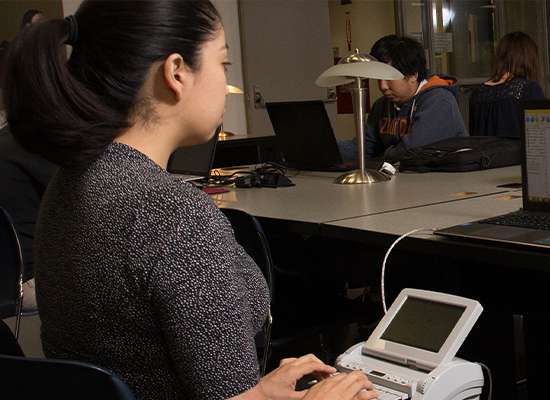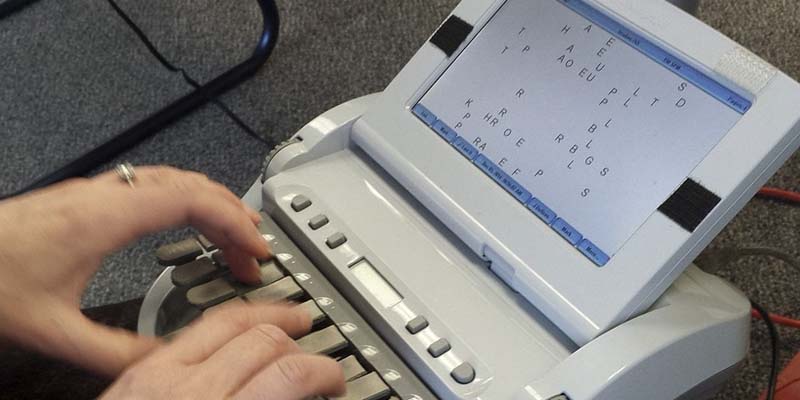The future of durham court reporting: AI integration
Exactly How Court Reporting Works: A Step-by-Step Overview to the Lawful Process
Court reporting is a vital component of the legal system. It entails an organized process that guarantees exact documentation of proceedings. From prep work to the last shipment of transcripts, each action is necessary. Comprehending how court reporters run offers understanding right into the integrity of lawful documents. The nuances of their job can exceptionally impact lawful outcomes, triggering questions concerning the techniques and technologies they utilize. What are the specific strategies that define this profession?
The Function of Court Reporters in the Legal System
Court reporters play an essential function in the legal system by supplying accurate and reliable records of court procedures. Their job assurances that every talked word during trials, hearings, and depositions is documented, which is crucial for keeping an official record of occasions. This transcription is fundamental for charms, as it permits higher courts to examine the process and determine if any type of errors were made during the test.
Additionally, court reporters aid in maintaining the honesty of the lawful process by producing verbatim documents that can be referred to by attorneys, courts, and various other celebrations entailed in a case. They typically make use of specialized devices and software program to record dialogue with precision. Past the courtroom, their records can function as important historic records, providing understanding right into judicial process and the lawful system's functioning. Eventually, court press reporters add substantially to transparency and accountability in legal matters.
Getting ready for a Court Reporting Session
Preparation is crucial for a successful court reporting session, as it guarantees the accuracy and effectiveness of the transcription process. Court reporters begin by evaluating situation materials, including pleadings and witness listings, to familiarize themselves with the terminology and context. They also make specific that they have the required tools, such as steno devices, notebooks, and back-up devices, ready for use.
Before the session, interaction with legal teams is essential. Press reporters usually clarify any kind of details demands pertaining to format or liked terminology. Furthermore, they may arrange to meet with witnesses or lawyers to go over the procedures and verify the routine. Arriving very early to establish the equipment enables repairing possible technical issues. On the whole, detailed preparation not only boosts the press reporter's confidence but additionally contributes greatly to generating a clear and precise document of the legal process.

Catching the Record: Strategies and Devices
Utilizing sophisticated methods and dependable devices, court reporters diligently catch the talked word during legal procedures. They employ stenography, a technique entailing a specialized maker that allows them to type numerous sounds all at once, thus recording dialogue in genuine time. This equipment, recognized as a steno keyboard, is outfitted with keys that represent words and syllables, allowing swift and precise input.
Along with stenography, stenotype reporter might make use of audio recording devices as supplementary tools. These gadgets function as back-ups, guaranteeing that no important information is lost during procedures. Some press reporters incorporate software application that improves their transcription effectiveness, supplying attributes such as voice recognition and automated formatting.
Appropriate positioning and focus are vital; press reporters need to keep focus on all audio speakers, recording subtleties and inflections that add to the document. Through a combination of skill and technology, stenotype reporter support the integrity of the legal process by ensuring a extensive and precise record of events.
Transcribing the Proceedings
Recording the procedures needs court reporters to convert talked discussion right into composed text with outstanding accuracy and speed. This process generally happens instantly after the recording has actually been recorded, using specialized software application that enables seamless transcription. Stenotype reporter have to pay attention diligently to the audio, ensuring that every inflection, pause, and word is precisely represented in the records.
They typically count on shorthand systems, personal transcription skills, and advanced innovation to promote this task. The environment in which they work can be hectic and in some cases chaotic, as lawful process often entail several speakers and technological jargon. Stenotype reporter need to also preserve concentration to capture subtleties in tone and context that may be essential for the lawful record. Eventually, the precision of the transcription is important, as it serves as a certification for future referral in legal procedures.
Reviewing and Editing the Records
The process of assessing and editing the records is vital for Visit Your URL making sure precision in court reporting. Stenotype reporter typically team up with attorneys to clear up any kind of ambiguities and verify the accuracy of the recorded statements. This partnership is crucial for maintaining the stability of the lawful document.
Significance of Precision
Precision functions as the cornerstone of efficient court reporting, as also small mistakes can substantially alter the significance of lawful process. The reviewing and editing process is vital in making certain that records reflect the spoken word with fidelity. Stenotype reporter diligently verify names, technical terms, and legal jargon to maintain precision. This interest to detail helps stop misconceptions that might impact situation results. Precision cultivates trust fund amongst legal experts, customers, and the court, enhancing the stability of the judicial system. Mistakes can bring about appeals or disagreements, making it vital for reporters to refine their work thoroughly. Inevitably, the search of precision not just improves the integrity of the records but also upholds the standards of the lawful occupation.
Cooperation With Attorneys
Cooperation between stenotype reporter and attorneys is essential during the assessing and editing and enhancing phase of records manufacturing. This process assures that the last file accurately mirrors the spoken word and adheres to lawful requirements. Lawyers usually evaluate transcripts for certain terms, context, and any kind of possible errors that can impact the case. Court press reporters rely upon attorneys' knowledge to clarify uncertain areas or highlight critical statements. Efficient interaction is key; attorneys may supply feedback or request adjustments, which court reporters have to attend to quickly. This partnership not only enhances the quality of the records yet additionally adds to a smoother lawful procedure. Inevitably, collaborative initiatives lead to a dependable and exact record, necessary for future recommendations and lawful proceedings.
Providing the Last Transcript to Customers
Upon conclusion of the transcription process, court press reporters thoroughly prepare the final paper for distribution to their customers. This last records undergoes thorough proofreading to guarantee precision, as any errors might considerably impact lawful proceedings. Court reporters style the document according to the details requirements established forth by the clients or lawful firms, consisting of pagination, indexing, and any type of essential exhibits.

Lastly, court press reporters may supply a cover letter summing up crucial information and using additional aid if required. This detailed strategy warranties that customers get a polished, precise, and conveniently accessible transcript, important for their lawful requirements.
Often Asked Questions
What Credentials Are Required to Become a Court Reporter?
To come to be a stenotype reporter, individuals typically require a senior high school diploma, completion of a court reporting program, and certification or licensure, relying on state demands. durham court reporting. Proficiency in shorthand and modern technology is likewise important for success
The length of time Does It Take to Total Court Reporting Training?
Generally, finishing court reporting training takes between 18 months to 4 years, depending upon the program's strength, the student's rate, and the particular this link needs of the jurisdiction in which they desire to practice.

What Is the Typical Salary of a Stenotype Reporter?
The ordinary salary of a stenotype reporter differs by place and experience, typically ranging from $45,000 to $100,000 each year (durham Full Report court reporting). Elements such as expertise and need can significantly affect their revenues in different regions
Are Court Reporters Required to Have Accreditation?
Stenotype reporter are usually needed to get accreditation, which ensures they have the required skills and expertise for exact transcription. Accreditation requirements can differ by state or territory, reflecting professional requirements within the legal neighborhood.
Can Court Reporters Job From Another Location or Freelance?
Stenotype reporter can work remotely or freelance, supplying flexibility in their profession. Several make use of modern technology to transcribe process from numerous areas, enabling diverse possibilities in the legal field while keeping a work-life equilibrium.
Court reporters play an important function in the legal system by supplying reputable and precise records of court procedures. Furthermore, court press reporters aid in maintaining the honesty of the lawful procedure by producing verbatim records that can be referred to by lawyers, judges, and various other events included in a situation. Utilizing advanced strategies and reliable equipment, court reporters carefully capture the talked word throughout legal proceedings. Court press reporters need to likewise maintain focus to catch subtleties in tone and context that might be vital for the legal document. To end up being a court reporter, people commonly need a high school diploma, conclusion of a court reporting program, and accreditation or licensure, depending on state requirements.